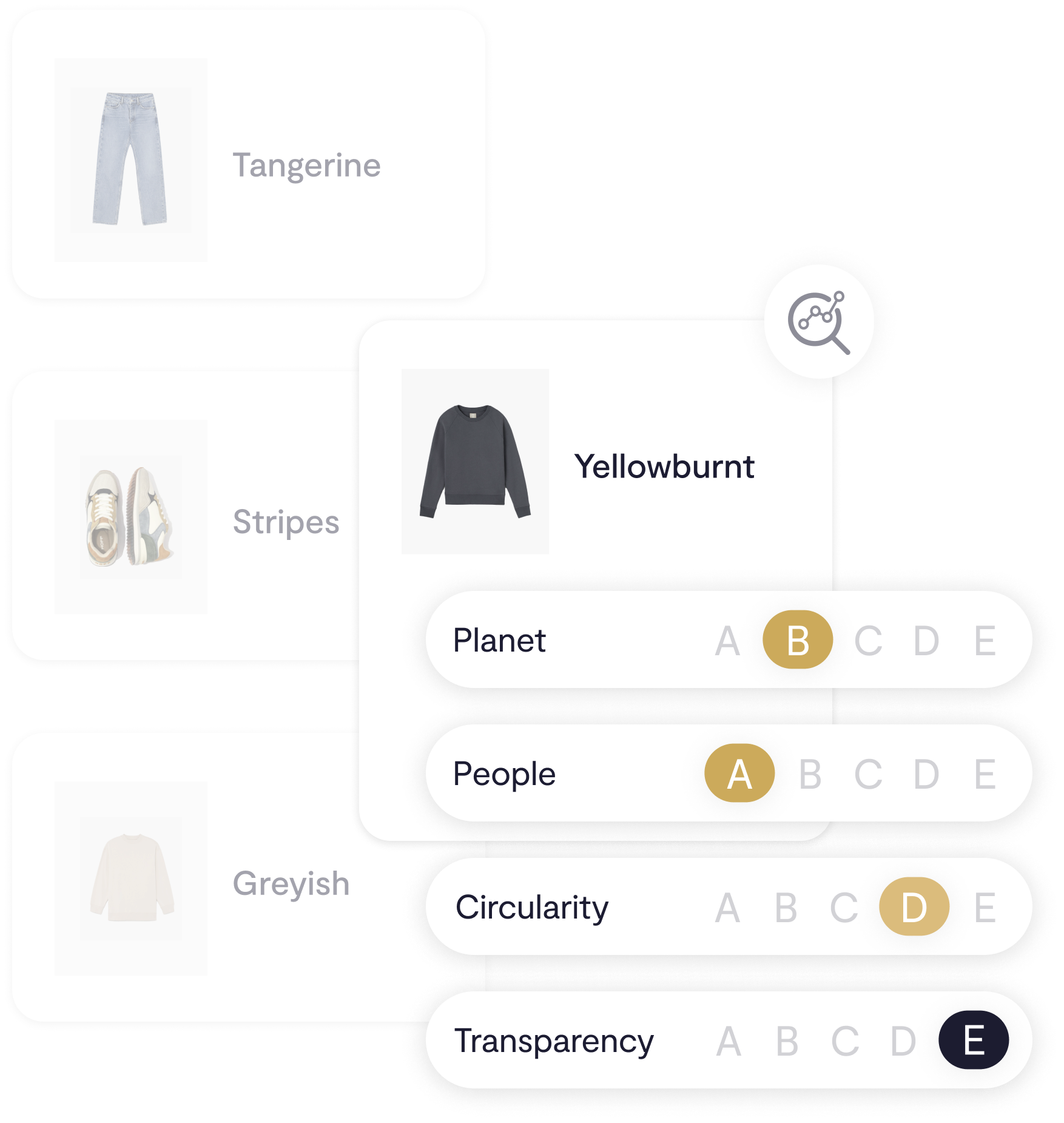Okay, everyone talks about sustainability in the fashion industry, but what do you do if your business has been in the market for years and it wasn’t created with a sustainable DNA? What are the first steps to start your transformation? Where to begin to address this great issue? We clearly know that far from being a trend, sustainability is here to stay. What a decade ago was a nice-to-have for some brands, has now become essential for any corporate strategy. Seen from the outside, we know that it can be complex, which is why we have prepared 5 tips that every fashion company can follow to start their journey towards sustainability from scratch.
What a decade ago was a nice-to-have for some brands, has now become essential for any corporate strategy
For those companies that are still fighting back this transformation, it’s essential to remember what are the levers that are accelerating the paradigm shift in the textile sector:
- Supply chain crisis. The prices increase, the current situation of global transport, in addition to the fragmentation of the chain itself, force the reorganization of the supply structure in the fashion industry.
- Legislative pressure. The action plans defined by official bodies are made up of multiple initiatives that seek to achieve sustainability in the coming years. Legislative measures with a medium-short term horizon for which companies will have to prepare in record time.
- Consumer’s demand. The ordinary citizen is becoming more and more aware. As greenwashing tactics increase, the public has more tools to identify which companies to trust. The demand for responsibility and transparency are becoming major purchasing criteria.
- Climate crisis. Climate change and its effects on the planet, the exponential growth of the population and the conditions of vulnerability in which many communities live constitute a global problem. According to UN estimates, by 2050 the world’s population will need the natural resources of three planets to maintain their current lifestyle.
There is always room for improvement and that is exactly what sustainability achieves, optimizing processes
Despite the obstacles and the clear trend of the textile sector towards sustainability, you may consider that the positive performance of your business is a clear indicator that you don’t need to turn towards sustainability. However, there is always room for improvement and that is exactly what sustainability achieves, optimizing processes.
Addressing sustainability from a multidisciplinary approach that takes into account the environmental, social and economic dimensions of your business activity will allow you to implement a strategy that gives rise to a more profitable and efficient production chain.
So, once we have decided to start this journey towards sustainability, where do we start? It’s time to prioritize where you should focus your efforts. Here is a short roadmap to help you take your first steps in sustainability.
1. Supply chain traceability
As we’ve mentioned before, supply chains are complex and often fragmented, which makes it difficult to track the processes experienced by the product throughout its life cycle. This can be solved by identifying who the suppliers are at the different stages of the supply chain. Total traceability provides transparency and knowledge to identify which are the critical points on which action must be taken as a priority.
Having a tool that allows you to break down this traceability will be of great help when dealing with the location of your entire supply chain. At BCome we help you monitor all the stages of your value chain, from the extraction of the raw material to the point of sale.
2. Efficient use of resources
Fashion continues to have a huge negative impact on the environment. From carbon emissions, to water pollution, to the use of harmful chemicals, textile companies and their suppliers must work together to track their environmental footprint. Comprehensively quantifying this impact will help implement measures to reduce resource consumption and ensure less damage.
At BCome we rely on Life Cycle Assessment to achieve a better understanding of the scope of the impacts caused by production, evaluating indicators such as global warming, eutrophication, water use or abiotic depletion product by product.
3. Optimization in the selection of materials
The choice of materials is essential to define the environmental impact that an article will have. Having the necessary data to study which fabrics have a smaller footprint will allow you to have a mix of materials that reduces the general impact of your products.
Thanks to the metrics and indicators calculated from an LCA, BCome can reveal the negative or positive impacts of a fabric to implement responsible solutions that optimize the design of your collections.
4. Promote circularity
Putting the ecodesign principles into practice with the aim of transforming the linear production system into a circular one is what will allow the fashion industry to extend the life of its products and materials. Brands must be able to create durable items that are also easy to disassemble and recycle. Technology is progressing to reduce the volume of textile waste that ends up in landfills, it’s time to join the innovation.
Thanks to the MCI methodology put into practice by BCome, it’s possible to analyze the circularity of your products in order to understand their full life cycle, including their end of life and recyclability.
5. Decent and safe work environments
Companies must ensure respectful working conditions that comply with universal human rights. The fashion industry is facing social issues that sustainability needs to address. Textile companies should ensure that suppliers comply with local legislative requirements and explore how they can support better wage systems.
In order to improve the degree of social performance of your products, at BCome we evaluate the social and socioeconomic aspects of your collections and their possible positive and negative impacts throughout their life cycle.
We know that beginnings can be difficult. However, the lack of experience and uncertainty don’t have to become obstacles when starting in the world of sustainability. Having a partner to guide you through the process is a smart move that will offer you expert support without having to disrupt your business.
At BCome we want to become the driver of change in your company. We have the tools you need to start your sustainable transformation today. You dare? We walk with you!






